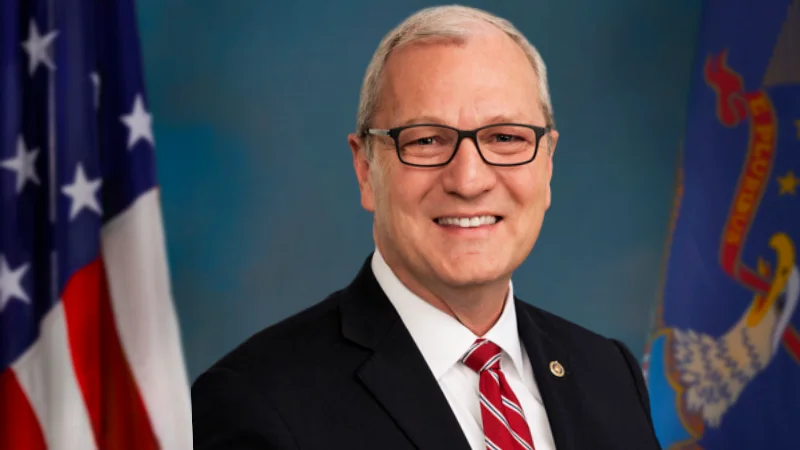Senator Kevin Cramer, US Senator for North Dakota | Senator Kevin Cramer Official website
Senator Kevin Cramer, US Senator for North Dakota | Senator Kevin Cramer Official website
The U.S. Senate has passed the One Big Beautiful Bill Act (OBBBA) by a narrow margin of 51 to 50, marking a significant legislative win for President Donald Trump’s administration. The bill aims to extend the 2017 Trump tax cuts permanently, support domestic energy production, bolster national defense, invest in border security, and address agricultural and healthcare issues.
Supporters say that within ten years, the OBBBA will reduce the federal deficit by nearly half and turn primary deficits into surpluses. The Congressional Budget Office projects a $507 billion reduction in the deficit due to this legislation, while the Council of Economic Advisors estimates savings could exceed $2 trillion over a decade.
U.S. Senator Kevin Cramer (R-ND), who voted for the bill, said: “What we did with this vote today is took a decisive step toward implementing President Trump’s agenda and restoring some fiscal sanity to Washington, D.C. which has been missing for several decades. It delivers on our promise as Republicans to extend pro-growth tax policy permanently, not just another extension, but make it permanent, and it gives much-needed certainty to American families, and businesses, and investment of all types. We are really aligning federal spending with North Dakota pragmatism, quite honestly. We’re slashing Green New Deal gimmicks, boosting reliable energy sources, delivering unprecedented resources to the border, which we know is in high demand, and then bringing defense efforts like the Golden Dome and nuclear modernization to complete fruition. It’s really a win for every American who believes prosperity, security, and fiscal responsibility all go hand in hand.”
The legislation continues provisions from the Tax Cuts and Jobs Act designed to benefit working Americans by expanding both the standard deduction—used by over 90% of taxpayers—and Child Tax Credit on a permanent basis. Without these measures in place through OBBBA passage, Americans would have faced what would be considered one of history’s largest tax increases.
Small businesses are set to benefit from continued deductions intended to spur job creation and economic growth at local levels. Full expensing for domestic research and development is included along with incentives aimed at encouraging new capital investments within U.S.-based industries.
On energy policy matters addressed by OBBBA: tax credits for wind and solar projects will be phased out quickly while more support goes toward nuclear power as well as geothermal and hydropower resources. Adjustments have been made that may benefit North Dakota coal producers through improvements in how certain credits are calculated or distributed.
Border security receives substantial funding under this bill—including resources allocated for over 2,300 miles of walls or barriers—and provides increased personnel support for both U.S. Border Patrol agents as well as ICE officers charged with enforcing immigration laws at America’s southern boundary.
For agriculture sectors facing uncertainty due to lack of an updated Farm Bill: reference prices under risk coverage programs will rise; crop insurance options are enhanced; disaster prevention funds increase; work requirements related to nutrition assistance programs receive changes intended toward efficiency improvements.
Medicaid reforms feature stricter eligibility verification procedures plus new work requirements applied specifically toward able-bodied adults without dependents or special medical needs—with certain exemptions provided—to ensure program sustainability going forward.
National defense components include significant allocations such as $25 billion dedicated toward missile defense technology (the Golden Dome initiative), upgrades across unmanned systems platforms including drones/ships/UAVs tied into military modernization efforts based partly in North Dakota facilities.
Other infrastructure investments amounting collectively above $34 billion target maritime commerce upgrades via Coast Guard recapitalization ($24+ billion), aviation safety enhancements through FAA technology updates ($12+ billion), restored FCC auction authority until 2034 (with mid-band spectrum auctions planned), among other telecommunications initiatives affecting both government agencies’ operational capacities nationwide.






 Alerts Sign-up
Alerts Sign-up